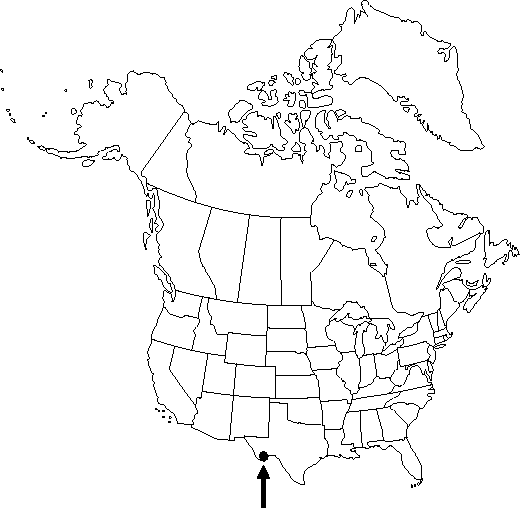Ostrya chisosensis
Wrightia 3: 128. 1965.
Trees, to 12 m; crowns open, cylindric. Bark brownish gray, broken into narrow vertical strips. Twigs sparsely to moderately pubescent, without stipitate-glands. Leaves: petiole glabrous or pubescent, without stipitate-glands. Leaf-blade broadly elliptic to elliptic-lanceolate, 3.5–5 × 2–3 cm, base narrowly rounded to cordate or cuneate, margins finely doubly serrate, apex obtuse to acute; surfaces abaxially sparsely pubescent, especially along veins. Inflorescences: staminate catkins 3–4 cm; pistillate catkins 0.8–1.5 cm. Infructescences 2–4 × 1.5–2.5 cm; bracts 1–1.8 × 0.5–1 cm.
Phenology: Flowering late spring.
Habitat: Streamsides and moist slopes in canyons
Elevation: 1500–2300 m
Discussion
Of conservation concern.
Ostrya chisosensis is endemic to Big Bend National Park, Texas. It appears to be related to O. knowltonii and to populations of hop-hornbeams in the mountains of western Mexico; the complex has not been studied in detail.
Selected References
None.
